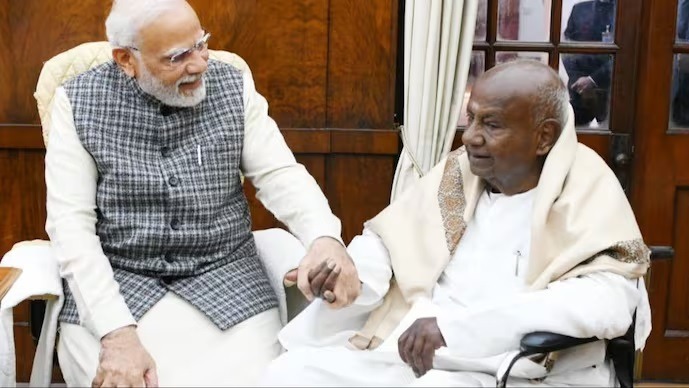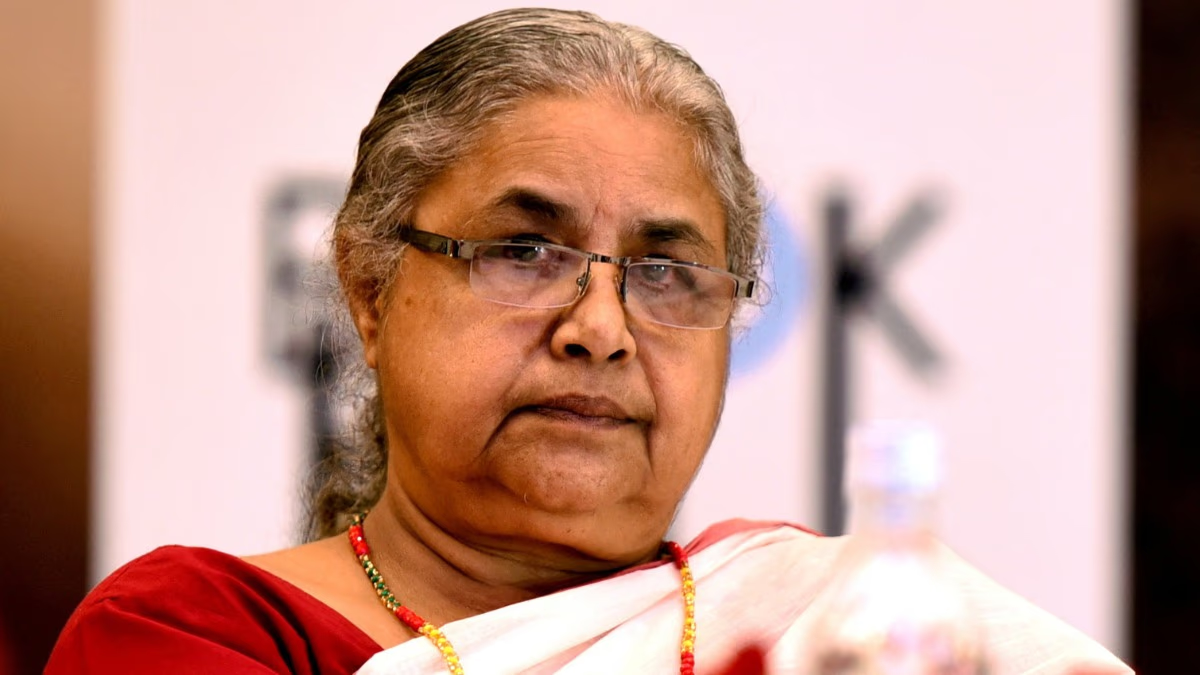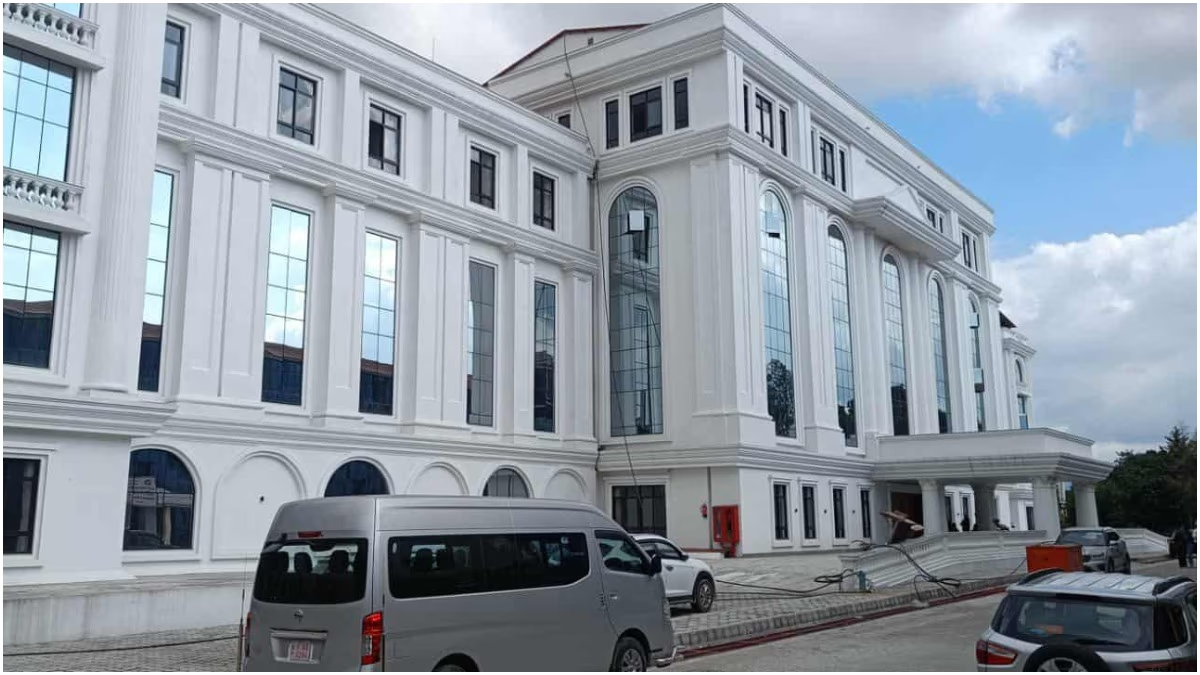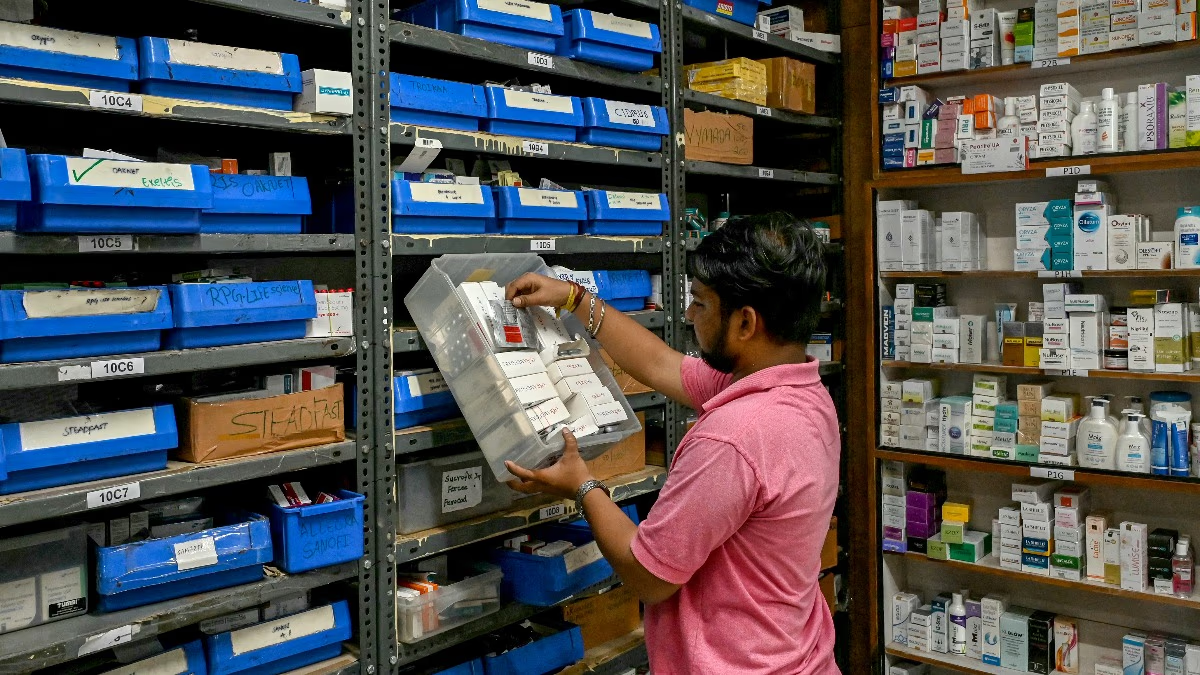Prime Minister Narendra Modi has criticized the Congress-led Siddaramaiah government's decision to include the Muslim community in the OBC list in Karnataka. Records indicate that this reservation was first introduced in 1995 by HD Deve Gowda's Janata Dal government. Intriguingly, Gowda's JD(S) is now an ally of the BJP-led National Democratic Alliance (NDA).
In a rally in Madhya Pradesh, PM Modi branded Congress as 'the biggest enemy of the OBC community' and stated that Congress has once again provided reservation on religious grounds in Karnataka by including all Muslim castes through the back door, effectively depriving the OBC community of a significant part of the reservation benefit.
The controversy escalated, leading Karnataka Chief Minister Siddaramaiah to claim that it is utterly false to assert that Congress has transferred reservation from the backward classes to Muslims. He also questioned whether former Prime Minister Deve Gowda still stands by his support for the Muslim quota, or has he capitulated before Narendra Modi since Gowda initiated it.
Siddaramaiah challenged, 'Does Deve Gowda, who once claimed to have implemented reservation for Muslims, still stand by his position? Or will he surrender before Narendra Modi and change his past stance? He must clarify this to the people of the state.'
The History of OBC Reservation in Karnataka
In 1995, the Deve Gowda government provided Muslims within the OBC quota a unique classification, under category 2B, with a four percent reservation. A Karnataka government order dated February 14, 1995, mentions that this decision was based on the Chinnappa Reddy Commission report and complied with the Supreme Court's directive to limit reservations to 50 percent. The Reddy Commission had recommended including Muslims under category 2 of the OBC list.
This report was first acknowledged by the Congress government led by Veerappa Moily, which announced a six percent reservation for Muslims, Buddhists, and converts to Christianity from Scheduled Castes, recognized as 'more backward' under category 2B, in two orders dated April 20 and April 25, 1994. While Muslims were awarded a four percent quota, the remaining two percent were designated for Buddhists and the SC converts to Christianity. This reservation was supposed to come into effect from October 24, 1994, but was challenged in the Supreme Court.
An interim order issued on September 9, 1994, directed the Karnataka government to limit the total reservation for Scheduled Castes, Scheduled Tribes, and OBCs to 50 percent. The Congress government under Veerappa Moily faced a political storm and fell before the order could be implemented, on December 11, 1994.
HD Deve Gowda became Chief Minister on December 11, 1994. On February 14, 1995, he implemented the previous government's quota decision with amendments in line with the Supreme Court's interim order. The SC community converts to Christianity and Buddhism, previously classified under category 2B, were reclassified under categories 1 and 2A, respectively. Four percent seats were reserved for Muslims in educational institutions and state government jobs under the 2B quota.
Current Reservation Status
In 2006, a coalition government of JD(S) and BJP was formed, followed by a BJP government led by BS Yediyurappa in 2008. However, no changes were made to this classification during either tenures.
When the BJP government returned to power in 2019, Chief Minister Basavaraj Bommai proposed on March 27, 2023, to eliminate categories 3A and 3B for OBCs, while suggesting new categories 2C and 2D with a two percent quota for Vokkaliga and Lingayat communities.
The Bommai administration also proposed to abolish the 2B category for Muslims and include them in the ten percent quota for Economically Weaker Sections (EWS). However, this faced opposition and became part of a legal battle, resulting in the proposal being deferred.
The Supreme Court on April 13, 2023, stated that the Karnataka government's decision to eliminate the four percent OBC quota for Muslims was 'prima facie unsustainable and flawed.' The Bommai government then stated that no new appointments or admissions would be made concerning the controversial government order. Currently, the Supreme Court has halted the implementation of the BJP government's decision, maintaining the status quo for the reservation for the backward class community.




